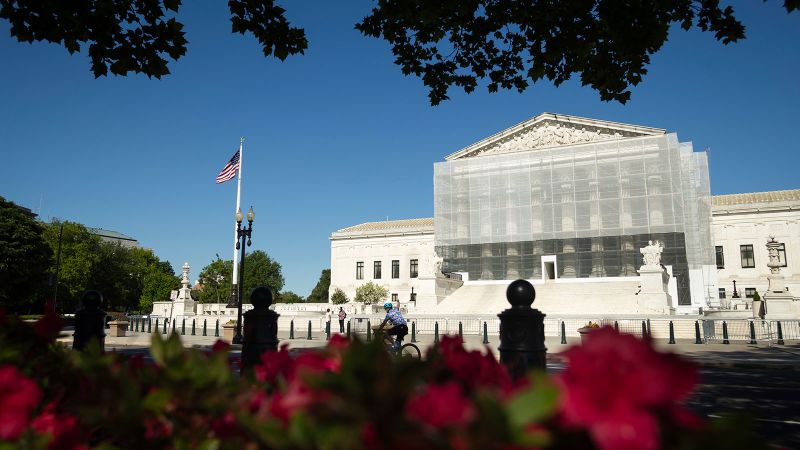On Thursday, the Supreme Court is set to hear significant arguments pertaining to former President Donald Trump’s controversial plan to terminate birthright citizenship. This plan could remarkably reshape the power of federal courts regarding Trump’s other policies and initiatives. This case, which arrived in less than four months after Trump’s return to the White House, is being observed as a pivotal moment in the court’s current term, especially because it questions longstanding interpretations of the 14th Amendment and the extent of judicial authority.
The case, while not explicitly framed to evaluate the constitutionality of birthright citizenship, encompasses an emergency appeal requesting the conservative-majority court, which has six Republican-appointed justices, to permit the administration to enforce an executive order Trump signed on his first day in office. This executive order seeks to limit passport issuance and related documents to infants born in the U.S. to parents who are not U.S. citizens. The implications of such a policy could potentially alter more than a century’s understanding of citizenship rights for individuals born in the United States.
Trump’s administration is not only pushing toward blocking courts from issuing nationwide pauses on his policies but is also seeking to challenge the courts’ interventions in matters he argues should fall under the executive branch’s purview. In framing their legal argument as “modest,” Trump’s lawyers express concern that the existing judicial framework is unjustly impeding executive policy implementation, arguing that judicial overreach occurs when courts intervene in the execution of a policy that was supported electorally.
The analysis of the Supreme Court’s receptivity to this line of argument is complex—there is underlying tension in the judiciary regarding the delineation of federal authority. Historical context illustrates that both Republican and Democratic administrations have criticized progressive judges they view as overstepping their judicial mandates. However, the core issue for the Supreme Court is how they choose to navigate the intersection between existing legal precedents, such as the 14th Amendment’s citizenship guarantee established in 1868, and new interpretations proposed by the Trump administration’s aggressive legal strategy.
As the high court prepares to tackle these issues, observers are keen to discern its stance on the procedural nuances surrounding the case. The emergency appeal filed by Trump’s legal team challenges the judicial authority of lower courts to issue laws that halt executive orders nationwide. The Justice Department labels such judicial actions as injurious to the principles of separation of powers, claiming they undermine the administration’s ability to effectively govern.
Despite these assertions, advocates for immigrants’ rights and other interest groups caution that a ruling favorable to Trump could have sweeping consequences, allowing the administration to enforce its birthright citizenship stance against nearly every citizen, contingent upon an individual’s legal standing to sue. This raises a practical dilemma: hundreds of thousands could find themselves embroiled in legal battles simply to secure their citizenship rights, with immigrant advocacy organizations potentially forced to undertake class action suits.
Key dynamics to monitor during the court’s deliberation involve the justices’ line of questioning and how they address the tangible implications of Trump’s proposals on birthright citizenship. Legal experts predict there could be more than mere procedural discussions at play; substantive principles concerning individual rights and systemic checks on government power may surface.
Moreover, the legal ramifications of nationwide injunctions have become a contentious topic among justices, suggesting potential limiting of states’ powers to challenge executive policies, depending on justices’ leanings. The court’s history of ruling in favor of limiting state engagements in federal disputes could significantly impact the case, especially given previous rulings where justices voted against states’ standing in challenging Presidential initiatives.
In summary, the outcome of this Supreme Court case could shape the landscape of birthright citizenship and the overall interaction between the judiciary and the executive branch. A ruling that dismisses the validity of nationwide injunctions could create substantial barriers for future lawsuits from states, effectively altering the rights of individuals born to non-citizen parents in the U.S. This case not only bears implications for the administration’s policies but also poses a critical determinant for civil liberties associated with citizenship and state authority in judicial review. The decision made by the high court may linger, influencing the judicial landscape for administrations to come.



